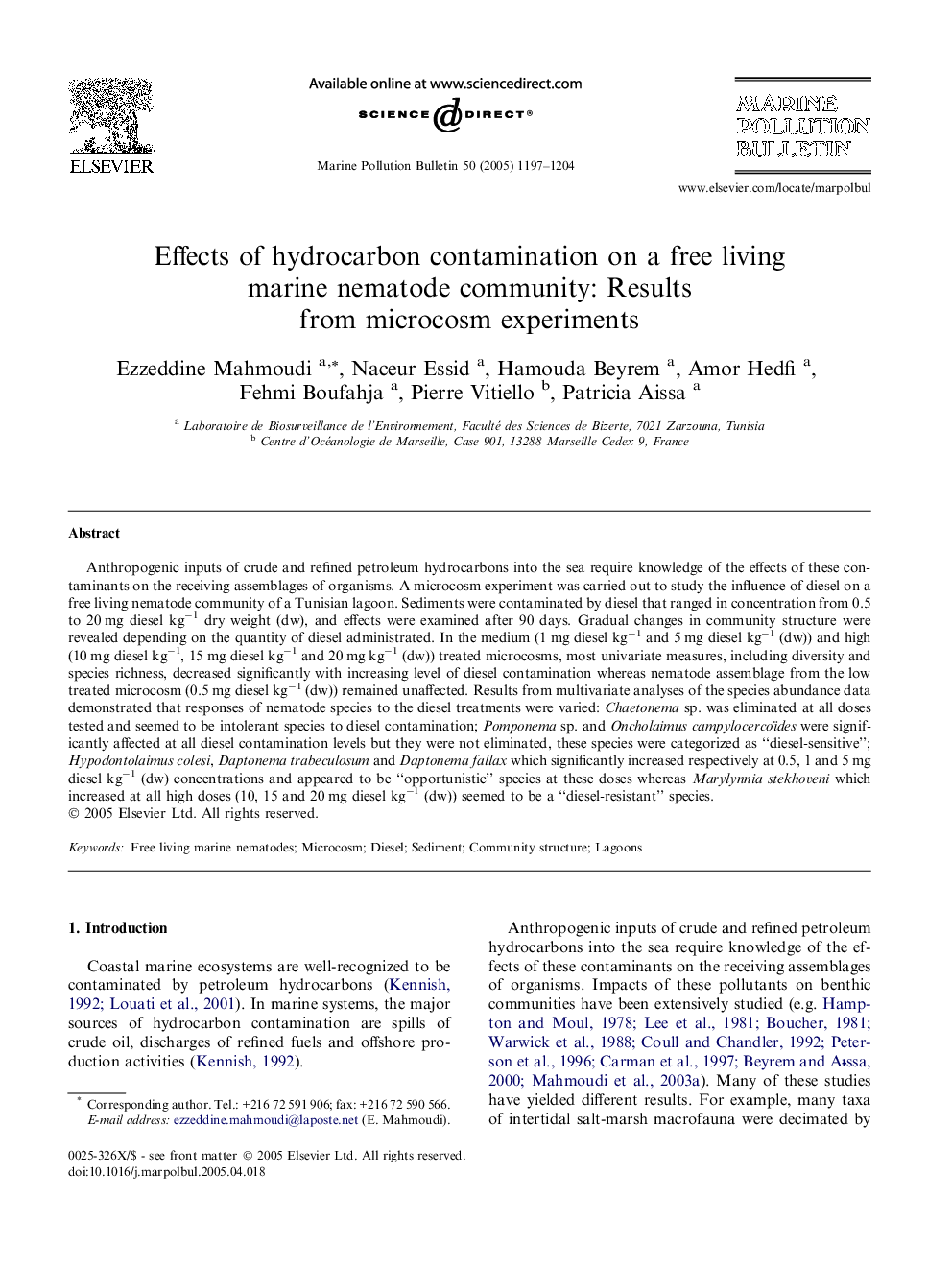| Article ID | Journal | Published Year | Pages | File Type |
|---|---|---|---|---|
| 9465990 | Marine Pollution Bulletin | 2005 | 8 Pages |
Abstract
Anthropogenic inputs of crude and refined petroleum hydrocarbons into the sea require knowledge of the effects of these contaminants on the receiving assemblages of organisms. A microcosm experiment was carried out to study the influence of diesel on a free living nematode community of a Tunisian lagoon. Sediments were contaminated by diesel that ranged in concentration from 0.5 to 20 mg diesel kgâ1 dry weight (dw), and effects were examined after 90 days. Gradual changes in community structure were revealed depending on the quantity of diesel administrated. In the medium (1 mg diesel kgâ1 and 5 mg diesel kgâ1 (dw)) and high (10 mg diesel kgâ1, 15 mg diesel kgâ1 and 20 mg kgâ1 (dw)) treated microcosms, most univariate measures, including diversity and species richness, decreased significantly with increasing level of diesel contamination whereas nematode assemblage from the low treated microcosm (0.5 mg diesel kgâ1 (dw)) remained unaffected. Results from multivariate analyses of the species abundance data demonstrated that responses of nematode species to the diesel treatments were varied: Chaetonema sp. was eliminated at all doses tested and seemed to be intolerant species to diesel contamination; Pomponema sp. and Oncholaimus campylocercoïdes were significantly affected at all diesel contamination levels but they were not eliminated, these species were categorized as “diesel-sensitive”; Hypodontolaimus colesi, Daptonema trabeculosum and Daptonema fallax which significantly increased respectively at 0.5, 1 and 5 mg diesel kgâ1 (dw) concentrations and appeared to be “opportunistic” species at these doses whereas Marylynnia stekhoveni which increased at all high doses (10, 15 and 20 mg diesel kgâ1 (dw)) seemed to be a “diesel-resistant” species.
Related Topics
Physical Sciences and Engineering
Earth and Planetary Sciences
Oceanography
Authors
Ezzeddine Mahmoudi, Naceur Essid, Hamouda Beyrem, Amor Hedfi, Fehmi Boufahja, Pierre Vitiello, Patricia Aissa,
